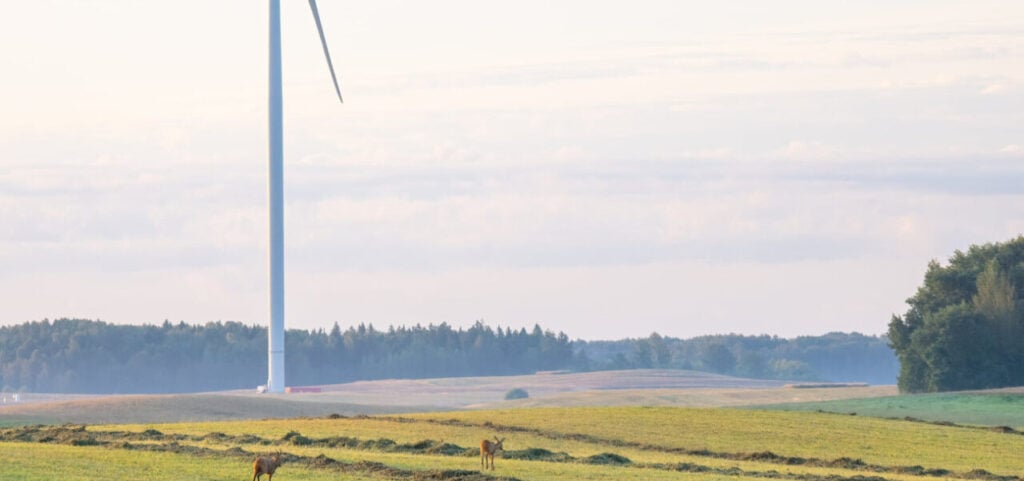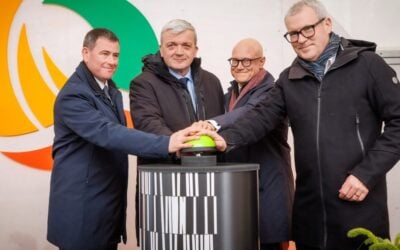
Utility Ignitis Group has taken a final investment decision (FID) on three large-scale battery storage projects in Lithuania.
The company said yesterday (1 July) that it will begin construction on the battery energy storage system (BESS) facilities, which have a combined output of 291MW and storage capacity of 582MWh.
Ignitis hopes to begin construction this year and has appointed Rolls Royce Solutions to provide equipment and integration services. The power and energy division of Rolls Royce manufactures its mtu EnergyPack BESS brand alongside other products including diesel gensets and microgrid controls.
The start of commercial operations is expected during 2027.
Try Premium for just $1
- Full premium access for the first month at only $1
- Converts to an annual rate after 30 days unless cancelled
- Cancel anytime during the trial period
Premium Benefits
- Expert industry analysis and interviews
- Digital access to PV Tech Power journal
- Exclusive event discounts
Or get the full Premium subscription right away
Or continue reading this article for free
The trio of projects represents an investment of around €130 million (US$153.11 million). The utility intends to apply for European Union-approved state aid funds for two of the projects.
State aid for BESS projects in Lithuania is capped at €102 million and 500MWh per entity and is available from a total €180 million European Union (EU) fund for energy storage in the country. Approved in October 2024, the funding is aimed at supporting the rollout of a total 1.2GWh of BESS.
They include two projects in northwest Lithuanian cities – a 147MW/294MWh BESS in Kelmė and a 45MW/90MW asset in Mažeikiai – along with a 99MW/198MWh project in central Lithuania, close to the site of Kruonis pumped hydro energy storage (PHES) plant, which is operated by an Ignitis Group company.
“Power generation from renewables is growing in Lithuania, which makes battery energy storage systems an important guarantee of reliability. They make the network more flexible, enable efficient use of green energy and help maintain stability even through heavy fluctuations,” Ignitis CEO Darius Maikštėnas said.
“Battery energy storage systems are a key component of green transition as they will help integrate more green capacities, balance the fluctuations in power prices as well as reduce them.”
Ignitis Group is targeting the deployment of 4GW to 5GW of green energy technologies by 2030, and net zero emissions by 2040-2050. The company is active in the Baltic states of Lithuania, Latvia and Estonia as well as Poland and Finland.
According to the company’s 2025-2028 Strategic Plan published in May, its installed ‘green capacities’ stand at 1.4GW with a 7GW development pipeline. Of the 8.4GW total, 4.6GW is located in Lithuania.
The company claims this makes it the top player in the Baltics, while it also claims to have the most utility customers in the region.
Wind generation is expected to make the backbone of its green generation, with onshore wind comprising 3.8GW and offshore wind 1.7GW of its total 8.4GW operational and development projects. It has 1.1GW of battery storage in development.
Ignitis has identified BESS as a green flexibility technology for short-duration applications, with pumped hydro providing medium-duration storage and power-to-X including green hydrogen as a long-duration energy storage (LDES) technology.
Around 63% of Lithuania’s power generation is produced in-country and the Baltic states recently disconnected from the grid it formerly shared with Russia and Belarus, instead connecting to and synchronising with the interconnected European grid.
Ignitis Group said in its Strategic Plan that the Baltic countries could become net exporters of surplus renewable energy in future.
Battery storage is already reported to be playing a strong role in stabilising the new grid paradigm, according to Lithuania’s grid operator Litgrid, which has deployed a 200MW portfolio of four equally sized 50MW BESS assets at strategic locations.
In February, independent power producer (IPP) E energija Group said construction had begun on a 120MWh project that the company claimed is Lithuania’s biggest privately-owned BESS to date. A couple of days later that month, Energy-Storage.news reported that state-owned utility Latvenergo is aiming to deploy 250MW/500MWh of battery storage by 2030.





